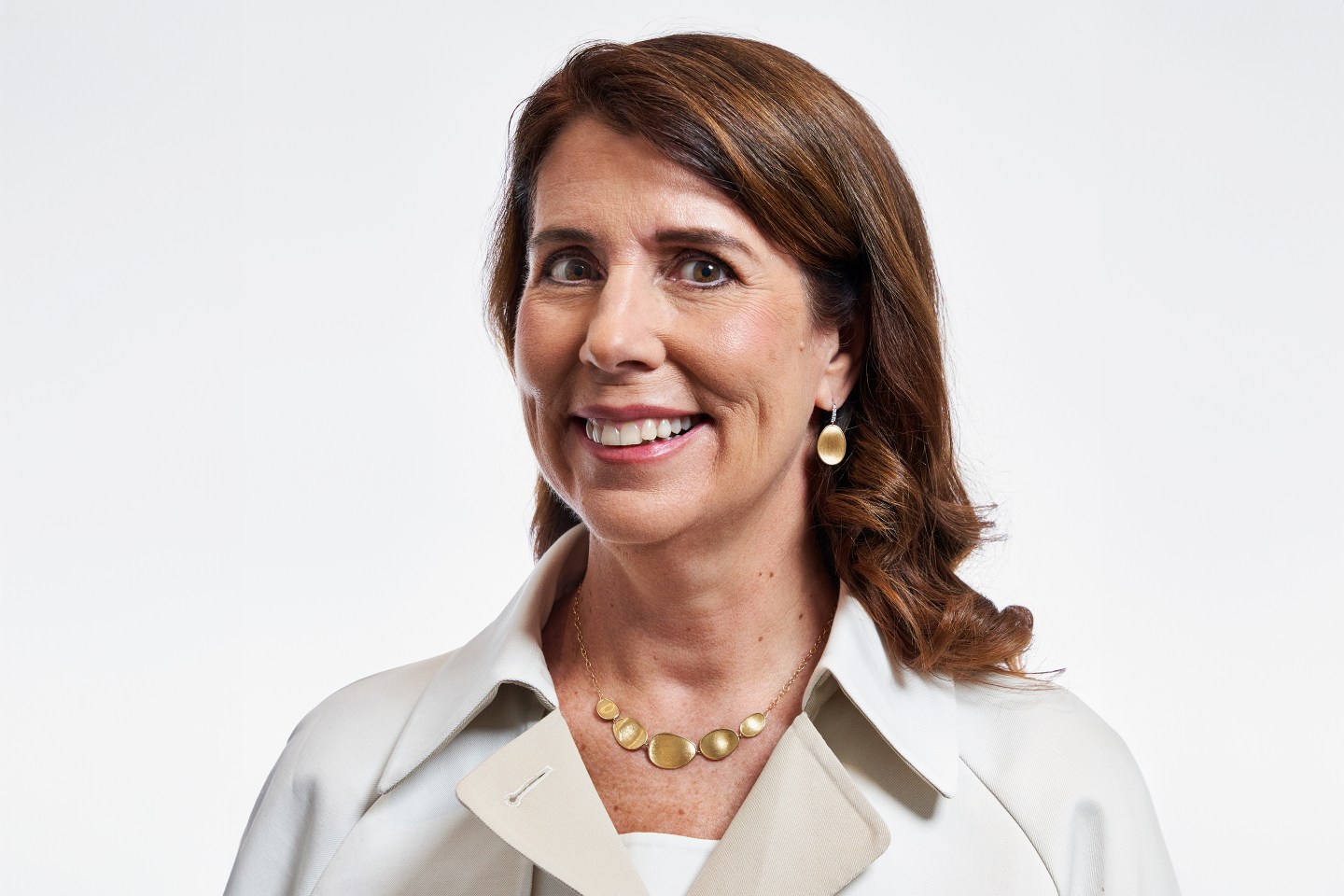Good morning. Cava customers used to loading toppings on salads and pita wraps while ordering beverages like blueberry lavender juice may soon find themselves with a new favorite at the burgeoning fast-casual chain.
Next week, Cava is launching a fire-grilled steak, “filling a perceived gap in our menu,” CFO Tricia Tolivar told me. “Right now, we don’t have a beef offering.” (A beef meatball was removed from the menu last year.) The company’s culinary team has been perfecting the steak for about two years, recently offering it in specific markets such as Dallas and Boston.
“The guests are responding well, and that gave us the confidence to bring it to all of our restaurants this summer,” Tolivar said. “Our steak Mezei salad is outstanding.” That dish combines the steak with roasted corn, Feta cheese, red pepper hummus, tzatziki, sun-dried tomatoes, Aleppo pepper, and Greek vinaigrette dressing atop arugula and spinach, she said.
Offering that kind of variety, Tolivar continued, allows Cava to attract different customers willing to spend at different price points. Not everyone will come for the steak, but it could help boost dinner sales, which now account for 46% of sales overall.
Even with inflation and prices rising everywhere consumers look, Tolivar noted, “we have not seen a lot of negative impact at all,” and many restaurant guests are continuing to add pita chips or fresh juice to orders. “That’s really driving what we call an increase in per-person average,” she said.
The company on Tuesday announced its latest results, for the fiscal quarter ending April 21. Revenue soared 30.3% to $256.3 million, up from $196.8 million a year ago and above analysts’ estimates. Cava reported its fourth straight quarter of net income and its first quarter of positive free cash flow as same-restaurant sales rose 2.3%, driven by a 3.5% increase from menu price and product mix partially offset by a 1.2% decline in traffic. In Q4 2023, Cava’s two-year traffic was approximately 13%, and that grew to 17% in Q1 2024, Tolivar said.
Cava, which now expects to open 50 to 54 restaurants this year, up from a Feb. 26 forecast of 48 to 50, also raised its same-restaurant sales outlook range to 4.5% to 6.5% from 3% to 5%. And, the company recently opened a $30 million state-of-the-art manufacturing facility in Virginia to help produce dips, spreads, and dressings. (Cava also has a facility in Maryland.)
The new facility allows for more vertical integration, which cuts costs and adds scalability, Tolivar said. It’s capable of producing goods for 750 Cava restaurants. “Right now, we’re at 323, so a lot of capacity to continue to grow,” she said.
Sheryl Estrada
sheryl.estrada@fortune.com
Leaderboard
O. James Sterling was named CFO of bluebird bio, Inc. (Nasdaq: BLUE), effective June 10. Sterling succeeds Chris Krawtschuk, who joined bluebird bio as chief financial officer in 2022. Sterling most recently served as CFO of Renalytix plc, a diagnostics company. He was previously managing partner at Renwick Capital LLC, and managing director at investment banks Brock Capital Group LLC and Aleutian Capital Group.
Ruben Baldew was named CFO at Nomad Foods Limited (NYSE: NOMD), effective June 17. Baldew will succeed Samy Zekhout, who is leaving his position, and will remain with the company until July 31. Baldew joins Nomad Foods with over 20 years of global consumer products experience, most recently as CFO of Accell Group. Before that, he spent over 15 years at Unilever in various finance roles.
Big Deal
Generative AI & The Office of the CFO, a new report by Billtrust, is based on a survey of 375 finance chiefs and takes a look into the adoption patterns, challenges, and the anticipated impact of generative AI on financial management at their organizations.
Sixty-five percent of CFOs say they are actively deploying generative AI. And 36% of CFOs who’ve already implemented it say it’s already adding value and impacting their revenue streams with an additional 40% expecting it to do so within the next year, according to the report. The technology is predominantly applied in financial transaction processing (77%), risk assessment (65%), and reporting (59%).
However, less than half (49%) of CFOs surveyed claim to be “very knowledgeable” about generative AI, and 34% believe it will take the next generation of leaders to fully implement it.

Going deeper
Better Decisions with Data: Asking the Right Question, a report in Wharton's business review, highlights the work of Stefano Puntoni and Bart De Langhe. Using Wharton's Nano Tools for Leaders, Puntoni and De Langhe provide the steps one can take to get the most from your data, including first collecting the data you really need.
“Decision-driven analytics puts decision-makers at the center, resolving the common mismatch between analytics and actual business decisions,” according to the authors.
Overheard
“It will continue to be critical to learn how to code in the future, but the knowledge and training a programmer needs will shift to knowing how to leverage tools and AI-built programs, rather than the hundreds of hours needed to master a specific programming language.”
—Ed Kim, vice president of education and training at Code Ninjas, writes in a new Fortune opinion piece.













